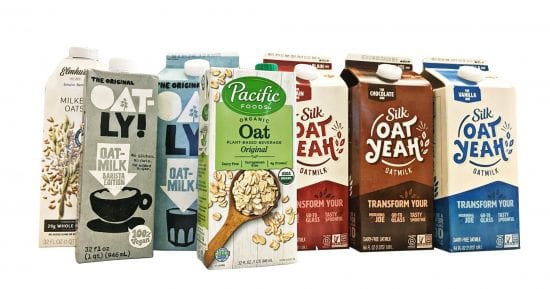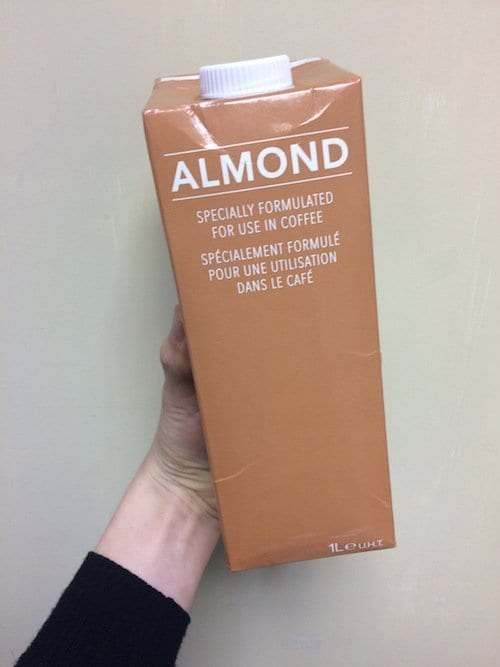
Should customers still be paying more for oat, almond, and other plant-based options?
BY KATRINA YENTCH
BARISTA MAGAZINE ONLINE
Feature photo courtesy of Pacific Foods
Her hands were trembling as she handed her card to the barista—the cause was not over-caffeination.
Her almond milk latte, a fairly standard café order, cost $7.50.
You’d probably be a little shaken up too if your daily coffee drink cost close to $10, right?

In the United States, we are no longer witnessing the rise of alternative milks; they are now a necessity. If this is the case, should companies still penalize guests for ordering these beverages? Baristas steam an almond or oat cappuccino nearly every other drink and incorporate as many shipments of popular brands like Oatly, Pacific Foods Barista Series, and Califia Farms with their regular dairy orders. Cafés even regularly host alternative milk latte art throwdowns.
“It’s no longer a difficult-to-get commodity,” says Monique Maravilla, owner of Kindness & Mischief Coffee in Los Angeles’ Highland Park neighborhood. Her café does not up-charge for alternative milks and uses Califia’s oat and almond, along with Pacific’s soy. “I literally order three-ish cases of cow milk per week, compared to 11-15 cases of almond and 15-20 cases of oat milk.”
Just this past January, Portland, Ore.’s Stumptown Coffee Roasters also nixed the additional fee. According to CookingLight, Vice President Jon Perry explained, “The company was making this change so people wouldn’t have to be penalized for their milk choice.”
Since alternative milks have become more popular than dairy milk in some cases, business owners can look to other areas to settle the additional costs that come with these orders. With an up-charge of $.75 to $1.50, these costs may be distributed to the overall price of a beverage on the menu rather than to almond and soy drinkers.
A case where alternative milks may cost more, however, is when they are made from scratch, in which case the cost of ingredients and labor surpasses the convenience of a ready-made dairy milk. Café Integral in New York City charges an extra $1.50 for their house-made milks; their menu lists an extensive array of flavors like oat, pepita, and coconut with sea salt (a single glass of one of these milks costs $5). Go Get ’Em Tiger in Los Angeles adds $1.50 for their own almond macadamia milk, which is also a staple in several of their signature beverages. The house-made oat milk, however, has no additional charge.

Go Get ’Em Tiger Co-Founder Charles Babinski says, “The oat milk is the same cost as the [relatively expensive] whole milk we purchase, not factoring in labor. The almond milk is about 30-50% more expensive than the whole milk, depending on how we cost it. In both cases, there is a reasonable amount of labor involved.”

Even Starbucks has introduced its own branded almond milk to the menu, and charges an extra $1 for it.
Today, it’s practically unheard of not to include an alternative milk option on your menu. Whether you choose to incorporate your own homemade oat milk or save a few bucks with a bigger brand, alternative milks are clearly here to stay, and it’s up to you decide whether or not you want your menu to reflect this.


